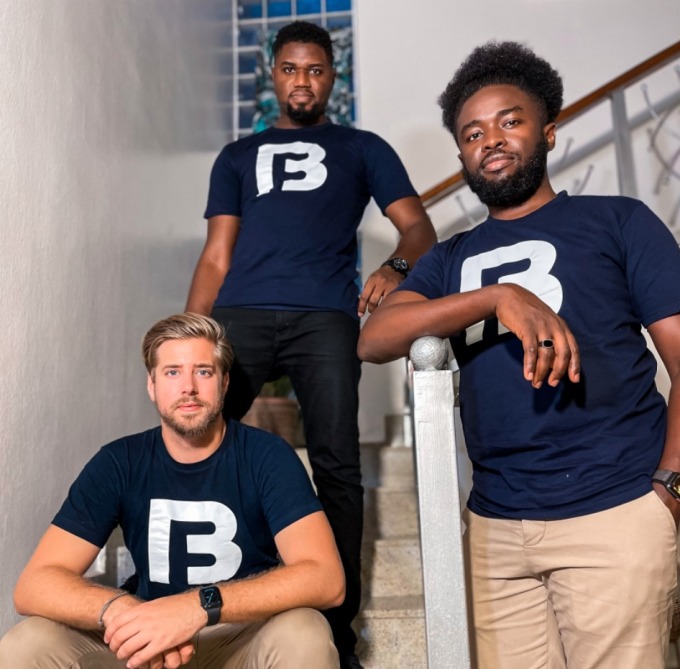Bfree, a Nigerian credit management fintech, has launched a global expansion after collecting $1.7 million in a pre-Series A investment to capitalize on prospects in emerging economies, where digital lending apps have proliferated in droves.
4Di Capital, Octerra Capital, VestedWorld, Voltron Capital, Logos Ventures, and several other angel investors participated in the latest round, bringing the total capital raised by the Lagos-based startup to $2.5 million, up from $800,000 in a seed round last May.
Bfree is currently on a massive hiring spree for the 16 new markets in which it is establishing operations, including Ghana, India, Uganda, Brazil, Colombia, Mexico, Russia, Poland, Pakistan, and Indonesia. This is as it expands beyond Nigeria, where it began operations in August 2020 before expanding into Kenya in July of last year.

“We’re going into markets with large populations, deepening credit, and an underdeveloped regulatory environment, where a behavioral collection approach is likely to work,” said Julian Flosbach, co-founder and CEO of Bfree.
Following their first-hand experience working for digital lenders in Nigeria, Chukwudi Enyi (COO), Moses Nmor (CPO), and Flosbach (CEO) set out to develop better, ethical, and tech-inspired debt-collection tools and processes.
“We saw that there was a little bit of a breach in the value proposition of lenders — they are good at giving out loans, but the credit market’s aftersales services didn’t work because collections processes were inefficient and not user friendly,” Flosbach explained.
According to Flosbach, Bfree uses ethical debt collection standards and works closely with defaulters to develop tailor-made settlement options, with the end goal of increasing repayment rates and customer satisfaction.
Ethical debt collection guidelines protect the protection of client information during the collection process, investigate flexible repayment options, and avoid excessive penalties such as late fees and debt-shaming (as is the practice with many digital lenders at the moment).
Currently, the startup is collaborating with 30 credit institutions, including digital lenders, microfinance institutions, and banks. The startup creates defaulter user profiles using customer data provided by lenders and runs their data through an algorithm to predict their behavior and recommend the best collection method.
Depending on a customer’s risk profile, Bfree will either direct them to a self-service platform where they can set up new payment plans using their phone number, follow-up on debt balances via automated communication (chat boxes, callbots, or IVR technology), or direct calls. The startup also runs financial literacy campaigns on a regular basis.
In recent years, emerging markets have seen an increase in the number of digital lenders providing credit to a population that has previously been underserved by traditional lenders. The credit provided is frequently instant and collateral-free, in contrast to loans from formal banking institutions (such as banks), where borrowers are required to hold an account, maintain regular account activity, and maintain minimum operating balances. Furthermore, traditional lenders require some form of collateral to protect themselves from losses when borrowers fail to repay.
Digital lenders provide much-needed credit to people who have been turned down by traditional banks, but they have a high default rate (in mid-2020, Kenya’s default rate on digital loans was 23 percent), forcing them to outsource the services of collection agencies, which, among other things, use debt-shaming tactics such as calling borrowers’ friends and relatives.
Bfree has so far followed up with 1.2 million defaulters and is currently serving around 800,000 customers, the vast majority of whom are in Nigeria. Flosbach expects the startup to handle 1.4 million profiles by the end of next month.
Bfree has secured the services of leading industry professionals, including CTO Konrad Pawlus, formerly of SALESmanago, and Yohan Theatre, formerly of investment management firm PIMCO, in preparation for its next stage of growth. The head of data decision-making and financial engineering is replaced by Theatre. The pair will be part of the team that will steer the startup’s new business as it works to disrupt traditional finance by utilizing blockchain technology for secondary debt markets.
“Lenders in the United States and Europe have the option of selling significant portions of their debt portfolios to third parties.” This means they only bear a portion of the risk associated with the loans they make. In most emerging markets, this is not the case.
Lenders must bear the entirety of the credit risk on their own. “Higher transaction costs and contractual uncertainties are a key driver of this difference,” said Theatre.
“The arrival of DeFi (decentralized finance) is a game changer: smart contracts reduce transaction costs while increasing contractual certainty.” “These are some of the risk-sharing instruments that we are now actively offering to lenders and borrowers,” he explained.
READ ALSO: Top 5 Best Fintech Companies in 2021: Banking Goes Online!
